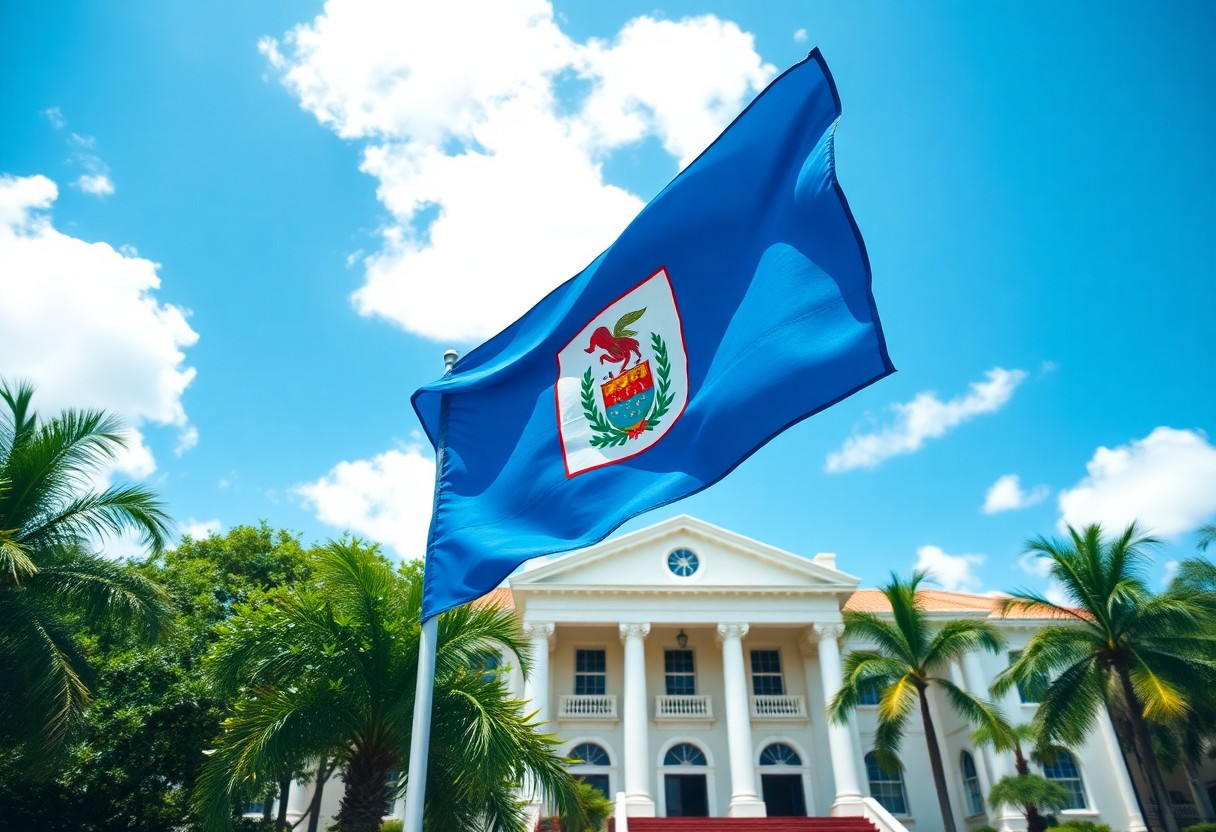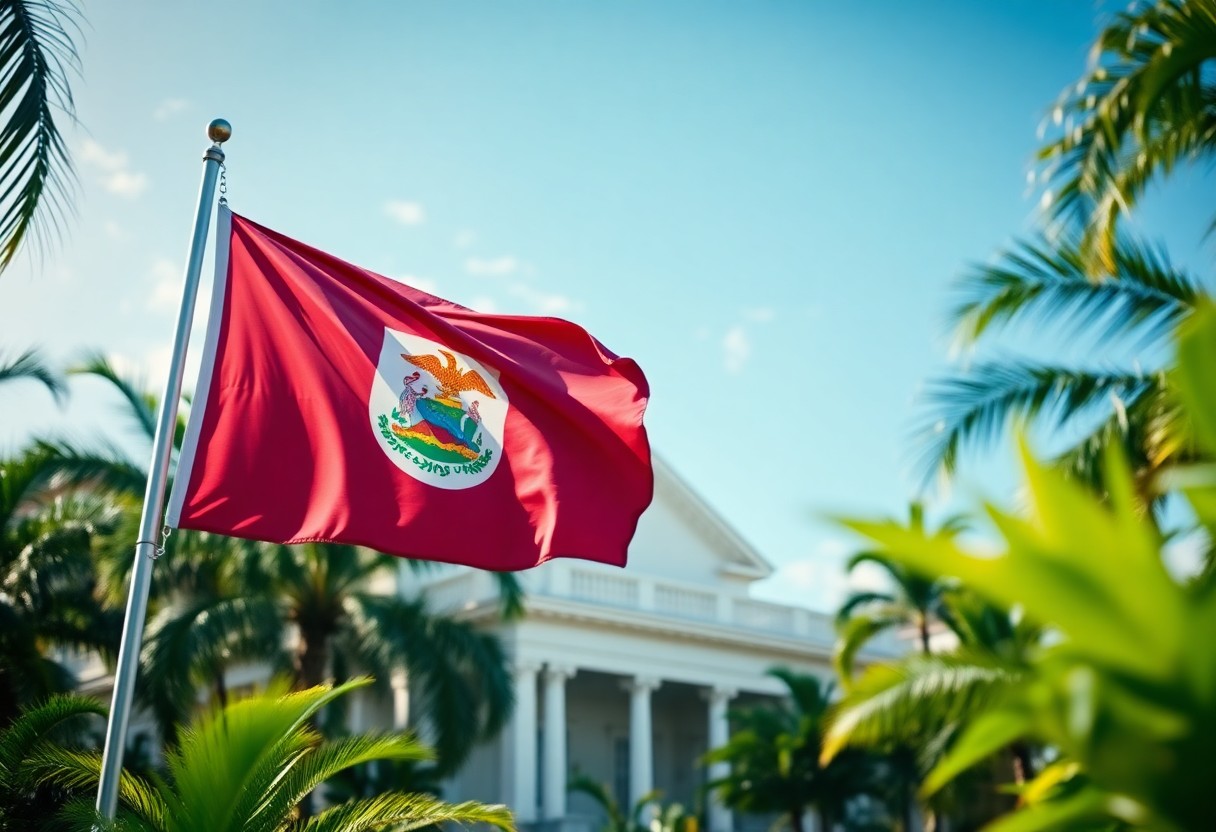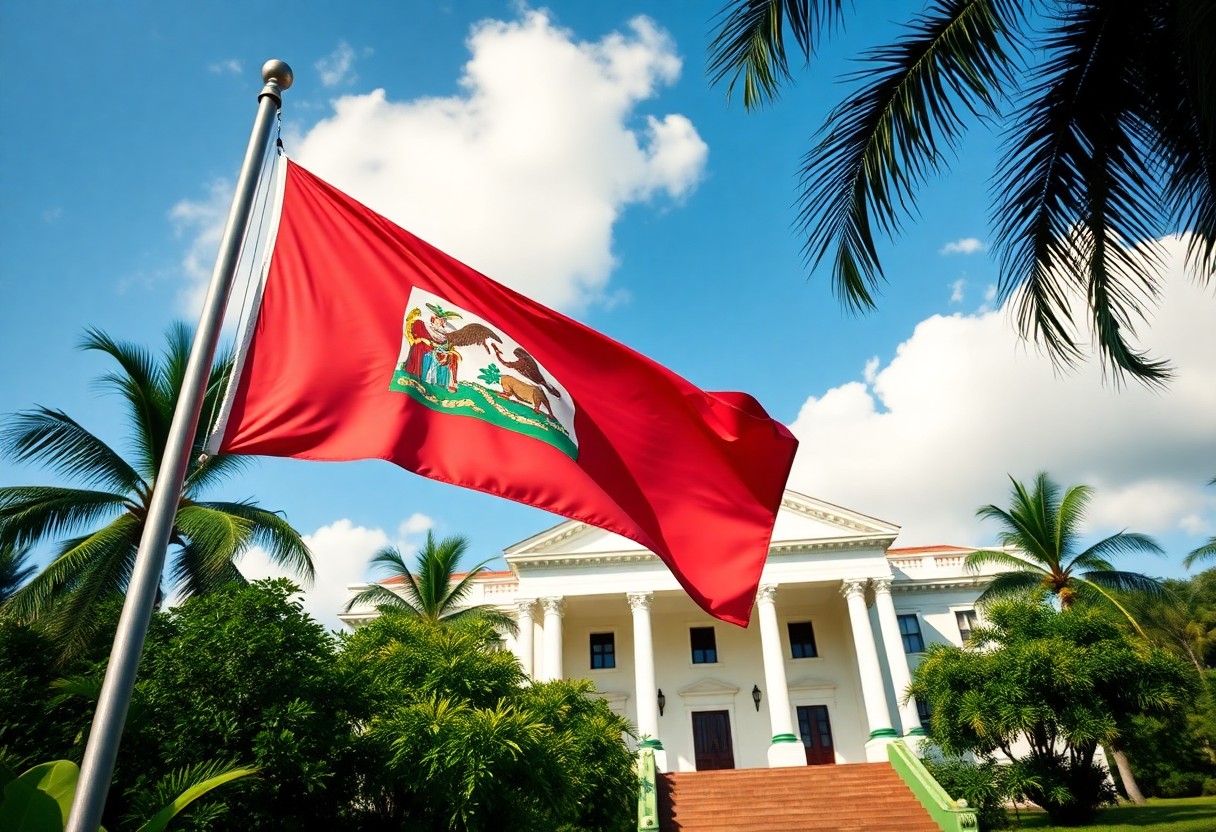Exploring the Historical Pathway of Belize Towards Its Independence is crucial for grasping the essence of Belizean culture and the intricacies of its historical narrative. This comprehensive article will delve into the significant historical milestones that played pivotal roles in the nation’s journey toward independence. It will highlight the enduring struggles against colonial dominance, the critical treaties established, and the landmark achievement of self-governance accomplished in 1981. These defining events not only exemplify the determination and strength of the Belizean people but also underline the transformational progress that led to the establishment of a democratic Belize. Join us as we explore the critical milestones that have shaped the national identity of Belize as we know it today.

Exploring Belize’s Rich Pre-Colonial Heritage and Its Impact on Modern Identity
Before the arrival of Europeans, the pre-colonial period of Belize was characterized by a vibrant and varied spectrum of indigenous cultures and their lasting legacies. Numerous indigenous groups flourished in the region, with the Maya civilization standing out as the most prominent. These societies developed intricate social hierarchies, pioneered advanced agricultural techniques, and established extensive trade networks that were remarkably progressive for their time. The cultural legacy from this era has profoundly influenced Belize’s identity, shaping the trajectory of significant historical events that followed in the region.
Highlighting the Extraordinary Achievements of the Maya Civilization
An in-depth exploration of pre-colonial Belize must prominently feature the remarkable accomplishments of the Maya civilizations. These ancient communities not only endured but thrived in various domains including architecture, astronomy, and agriculture. Visitors and locals alike have the opportunity to discover the breathtaking remnants of Caracol and Lamanai, which serve as lasting testaments to the Maya’s sophisticated lifestyle and their deep understanding of urban planning and natural sciences. These sites not only attract tourism but also provide invaluable insights into the ingenuity of the Maya culture.
Embracing Belize’s Multifaceted and Rich Cultural Heritage
At the core of Belize’s identity lies an intricate and vibrant cultural heritage. This dynamic tapestry is woven from the complex interplay between indigenous, African, and European influences that have significantly shaped contemporary Belizean society. The richness of this heritage is vividly manifest in the diverse languages, traditions, and customs that enrich daily life in Belize, contributing to a unique cultural landscape that is deeply valued by its citizens. Understanding this cultural richness is essential for appreciating the modern Belizean experience.
Moreover, heritage plays a vital role in framing Belize’s cultural identity. The architectural marvels of the Maya, alongside their agricultural innovations, continue to have a profound impact on contemporary Belizean life. Additionally, the substantial contributions of the African and Creole communities have significantly enriched the artistic expressions, musical traditions, and culinary delights found throughout Belize. This captivating blend of cultures fosters a deep sense of belonging and pride among Belizeans, serving as a testament to the historical trials faced by these diverse groups throughout Belize’s intricate history.
Understanding the Era of British Honduras: A Pivotal Historical Chapter
The period when Belize was known as British Honduras marks a significant chapter in its history, characterized by British colonial rule. Spanning from the 18th century to the mid-20th century, this era witnessed the emergence of a unique cultural identity heavily influenced by British governance, economic ambitions, and local resistance movements. During this time, crucial transformations took place within political and administrative frameworks, ultimately laying the groundwork for Belize’s steadfast pursuit of independence.
A Detailed Overview of British Governance in Belize Through the Years
Officially recognized as a British colony in 1862, British Honduras experienced considerable advancements including the establishment of the British legal framework and the development of vital infrastructure. Throughout the years, the colony faced significant resistance from the local populace, notably highlighted by the 1934 labor riots, which played a crucial role in galvanizing the Belizean people’s demand for self-governance. This unrest was indicative of a growing awareness and desire for autonomy among Belizeans.
The Lasting Impact of British Colonialism on Belizean Society
Ultimately, the legacy of British colonial rule has left an enduring mark on Belize’s societal structures and governance. The introduction of the English language, along with legal frameworks and educational institutions, has been instrumental in modernizing the nation. While this colonial dynamic presented numerous challenges, it also established essential foundations for the democratic governance that Belize enjoys in the present day.
Furthermore, the effects of British colonialism are evident in various aspects of contemporary Belizean society. The English language remains the official medium of communication, facilitating local and international interactions. Moreover, the legal and governance structures established during the colonial period have significantly shaped Belize’s current judicial system. However, it is crucial to recognize that this influence came with the exploitation of resources and cultural imposition, leaving lasting impressions on Belizean demographics and national identity. Understanding these complex dynamics is vital for comprehending Belize’s multifaceted journey toward independence.

Mapping the Significant Pathway to Independence for Belize
Any exploration of Belize’s journey toward independence must acknowledge the critical events that facilitated this monumental transformation. The path to liberation involved responding to colonial pressures, fostering a burgeoning sense of nationalism, and advocating for greater self-determination among the Belizean populace. The mid-20th century marked an increase in political activism, which relentlessly laid the groundwork for Belize’s ultimate liberation from British colonial rule.
Honoring the Pivotal Figures of Belize’s Independence Movement
Key historical milestones along Belize’s road to independence featured prominent leaders such as George Cadle Price. Recognizing their leadership and vision allows us to appreciate how these figures mobilized public support for self-governance, significantly shaping the nation’s future and identity in profound ways.
Engaging in Negotiations for Self-Governance and Autonomy
During the crucial discussions regarding self-governance, representatives of the Belizean populace emerged to propose transformative strategies that would alter the course of history.
With a proactive and determined approach, Belizean leaders participated actively in negotiations with British representatives concerning self-governance. These discussions proved to be a crucial turning point, as Belize sought to assert its autonomy in managing its own affairs. The establishment of political parties and organized movements was vital in articulating the demands for change from the Belizean populace. As tensions escalated, the negotiations intensified, reflecting the urgency felt by Belizeans for autonomy. This pivotal period culminated in various constitutional amendments, laying the foundation for Belize’s eventual independence from colonial oversight.
Highlighting Key Milestones on the Journey to Independence
A multitude of significant milestones marked Belize’s arduous journey to independence. From early legislative advancements to decisive events, each milestone played a vital role in the pursuit of self-determination. As you contemplate these key developments, you will come to understand their profound impact on the nation’s identity and the ongoing struggle for sovereignty.
Significant Legislative Progress Leading to Self-Governance
One of the early legislative advancements was the formulation of the Internal Security Act in 1961. This legislation established a framework for self-governance, permitting a limited degree of autonomy in local governance matters. This pivotal act marked a watershed moment, encouraging Belizeans to engage actively in political processes and advocate for further reforms aimed at enhancing their rights.
Defining Events from 1964 to 1981 that Shaped Belize’s Political Landscape
In the years leading up to Belize’s independence, significant developments from 1964 to 1981 played an essential role in shaping the nation’s political framework. This era witnessed the emergence of influential political leaders and nationalist movements, which laid the groundwork for achieving self-governance.
During this transformative period, numerous key events unfolded that contributed to Belize’s independence. The 1964 Elections marked the beginning of a new phase of political engagement by broadening voting rights to a larger segment of the Belizean populace. The 1969 Belize-Guatemala tensions heightened calls for autonomy and unity among citizens. The 1973 Constitution established a more robust governance framework, affording additional rights and liberties to the populace. Ultimately, these developments, along with the declaration of independence in 1981, were instrumental in defining Belize’s journey toward forging a national identity and self-rule.

Addressing Challenges and Opportunities in Post-Independence Belize
In the years following its independence in 1981, Belize faced a series of challenges and opportunities in its quest to establish a unified national identity and effective governance. The nation undertook significant initiatives to create a stable political framework while promoting economic growth and tackling pressing social issues. Efforts were directed towards improving infrastructure, enhancing education, and developing healthcare systems, all aimed at elevating the quality of life for every Belizean in this young and evolving democracy.
Understanding the Political Framework Governing Belize
The political structure is fundamental in shaping the governance of Belize. The country operates as a parliamentary democracy with a clear separation of powers among the executive, legislative, and judicial branches. The Prime Minister leads the government, while the legislative body comprises the House of Representatives and the Senate. This political system encourages regular elections and the representation of diverse political perspectives, fostering active civic engagement among the populace and promoting democratic values.
The Significance of Commonwealth Membership in Belize’s Development
Upon achieving independence, Belize became a member of the Commonwealth of Nations, which has played a crucial role in fostering international relationships and support. This membership grants Belize access to a network of countries that share similar democratic values, allowing participation in collaborative initiatives across various sectors such as education and trade.
A significant advantage of Commonwealth membership is the opportunity to engage in dialogues concerning regional issues that impact Belize. Participation in this organisation enhances Belize’s global stature and strengthens ties with other former British colonies. Moreover, Commonwealth nations often extend developmental assistance, which can be vital in addressing local challenges. However, this membership also necessitates a commitment to upholding democratic principles and human rights, ensuring that Belize continues to evolve as a respected member of the global community.
Confronting the Modern Challenges Facing Belize Today
It is imperative to recognize that Belize is currently grappling with a multitude of contemporary challenges that significantly influence its stability and growth. These challenges encompass economic concerns, social issues, governance, and environmental factors that collectively shape the nation’s future trajectory. Addressing these pressing matters is critical for sustaining progress, as they have direct implications on the daily lives of Belizeans and the overall development of the country.
Examining Economic Challenges in Today’s Belize
Modern economic challenges in Belize include rising unemployment rates and an over-reliance on tourism as a primary economic driver. These factors contribute to economic instability and have a direct impact on the livelihoods of local businesses and communities. Fluctuations in global tourism trends can profoundly influence Belize’s economy, placing additional strain on government resources and public services, thus necessitating diversification of the economic base for sustainable growth.
Addressing Social Issues within Belizean Society
In Belize, social challenges such as poverty and inequality persist as significant obstacles. Issues like limited access to education and healthcare services exacerbate disparities among different communities, adversely affecting the overall quality of life for Belizeans. Strengthening social infrastructure is essential for fostering equity and improving living standards across the nation.
Moreover, understanding that social challenges in Belize are intricately linked to prevailing economic conditions is crucial. The high rates of poverty directly impede access to essential services, while inequities in education can obstruct future opportunities for many. Nevertheless, community initiatives and government programmes are actively working to tackle these issues, instilling a sense of hope and resilience within the population. By strengthening social bonds and investing in education and healthcare, Belize can move toward achieving a more equitable society for all its citizens.
Reflecting on the Transformative Path of Belize to Independence
Reflecting on Belize’s journey to independence allows for a deeper appreciation of the key historical milestones that have shaped the nation’s identity. The implications of the 1964 and 1973 constitutional reforms laid the groundwork for self-governance and a more representative political system. The significance of the 1975 Treaty of Friendship with Guatemala in addressing longstanding territorial disputes cannot be overstated. Ultimately, the formal independence achieved on September 21, 1981, marked a transformative chapter in Belize’s history, allowing every Belizean the opportunity to celebrate their national identity and sovereignty. Each of these milestones played a critical role in shaping Belize into the vibrant nation it is today.
Frequently Asked Questions About Belize’s Independence Journey
What Major Historical Events Led to Belize Gaining Independence?
Belize’s journey to independence was characterized by a series of significant events. The movement for independence began to gain momentum in the 1940s, culminating in 1981 when Belize officially emerged free from British colonial dominance. Key milestones during this period included the establishment of a constitutional government in 1964 and the organization of self-governing elections, which were crucial for empowering the Belizean populace.
Who Were the Key Figures Integral to Belize’s Independence Movement?
A number of influential individuals played critical roles in the independence movement. George Price, the leader of the People’s United Party, was instrumental in advocating for Belize’s liberation. Other notable figures included Philip Goldson and various members of political organizations that actively campaigned for self-determination and national sovereignty.
How Did the British Government Respond to Belize’s Push for Independence?
The British government initially displayed reluctance to embrace the idea of independence but eventually recognized Belize’s readiness for self-rule. This shift occurred as they observed the increasing political awareness and activism among Belizeans. British officials collaborated with local leaders to facilitate a smooth transition towards independence, acknowledging the inevitability of self-governance.
The Article How Belize Gained Independence: Key Historical Milestones appeared first on Belize Travel Guide
The Article Belize Independence: Key Historical Milestones Explained Was Found On https://limitsofstrategy.com
The Article Belize Independence: Essential Historical Milestones Uncovered First Appeared ON
: https://ad4sc.com




No responses yet